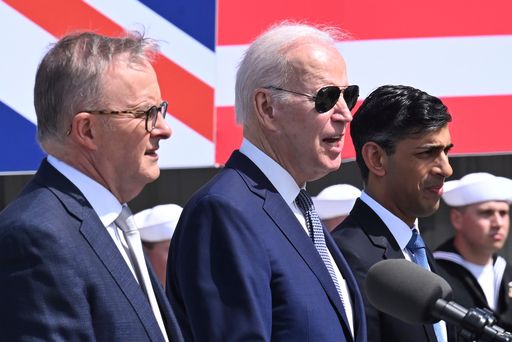Foreign ministers from the Quad group — the United States, Australia, India and Japan — have launched a joint initiative focused on critical minerals, in a bid to counter China’s dominance in the sector and strengthen supply chain resilience across the Indo-Pacific.
The move came as US Secretary of State Marco Rubio hosted his counterparts in Washington DC on Tuesday, reaffirming the group’s strategic alignment despite growing bilateral frictions with the Trump administration.
The Quad Critical Minerals Initiative, unveiled following the meeting, aims to "strengthen economic security and collective resilience by securing and diversifying critical mineral supply chains," the State Department said in a readout of the meeting.
While the Quad countries share common concerns over China’s expanding influence, ties have recently been strained by President Donald Trump’s global tariff campaign and mounting pressure on allies to increase defence spending.
Japan postponed a planned ministerial dialogue with the US, reportedly over frustration with Washington’s demands for higher defence contributions.
The Financial Times said the pressure originated from Pentagon policy chief Elbridge Colby, who also caused concern in Australia by ordering a review of the AUKUS submarine deal.

‘Time to deliver’
India, meanwhile, rejected Trump’s claim that his threats helped defuse tensions with Pakistan after a deadly attack in Kashmir earlier this year, calling it an inaccurate portrayal of events.
Despite these tensions, Rubio used the Quad meeting to underscore Washington’s priorities in the region.
"It’s time to deliver action," he said, noting that 30 to 40 companies from the four countries were meeting to coordinate on critical minerals and other economic issues.
State Department spokesperson Tammy Bruce said the Quad "reaffirmed our shared commitment to a free and open Indo-Pacific" and would continue working on maritime security, sovereignty, and regional stability.
After the group session, Rubio held bilateral meetings with Japan’s Takeshi Iwaya, India’s Subrahmanyam Jaishankar, and Australia’s Penny Wong.
Speaking in New York ahead of the talks, Jaishankar said that while "relationships will never be free of issues," it is crucial to "keep that trend going in a positive direction."
He cited maritime security, technology, pandemic preparedness and education as key areas of cooperation.
"We’re all committed to ensuring a free and open Indo-Pacific," he said at the start of the Quad meeting.
"Our efforts are focused on supporting a rules-based international order."
Points of friction
Analysts warned that friction over trade and defence may overshadow the progress. Former Australian ambassador to Washington, Arthur Sinodinos, said there is strong interest in clarity from Washington on AUKUS and trade, as well as a potential meeting between Prime Minister Anthony Albanese and Trump.
Nicholas Szechenyi at the Center for Strategic and International Studies said US-Japan ties had lost momentum, noting that "the Japanese appear exasperated by the administration’s public lectures on defence spending."
Richard Rossow, an India analyst also at CSIS, described Trump’s approach as "clumsy," but said the long-term strategic and economic case for Quad cooperation remained intact.



















